Magic or Science? The classroom comes alive!
21 Jul 2014
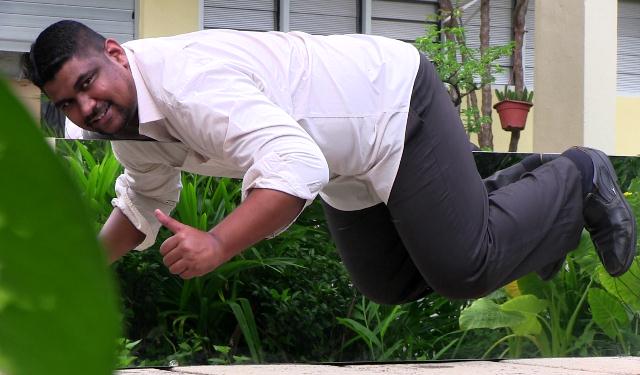
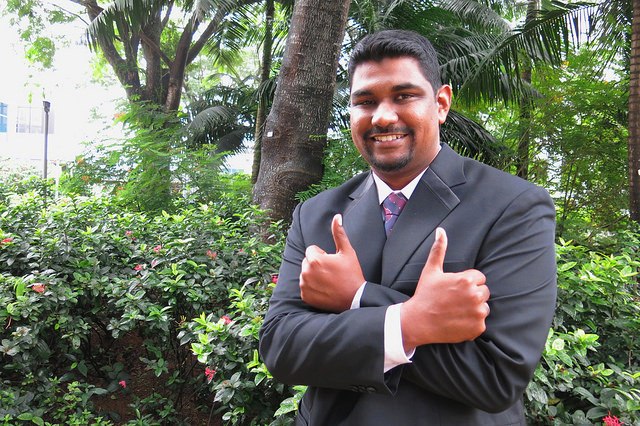
“Wingardium Leviosa!” This levitation spell from the Harry Potter fantasy book series is probably what most of us would be familiar with when it comes to making objects fly in the air. But what if students were to see their teacher levitating?
At Pasir Ris Secondary School, students watched a video of their teacher lifting off from the ground and levitating in the air, and were baffled. How did their teacher do that? Every student paid rapt attention to the video, trying to figure out how it was done.
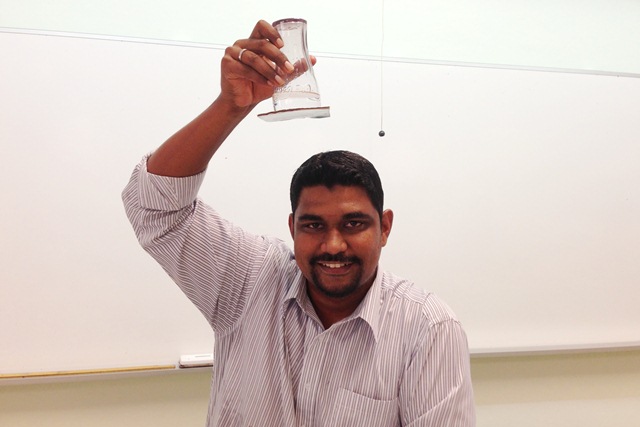 Magic tricks, an innovative way of capturing the attention of students in class, are often used by Mr Mohamed Ashiq Bin Mohamed Elias, 34, a physics teacher and Head of Department for Discipline. By linking science concepts to magic tricks, the students’ minds are engaged as they seek to unravel the trick.
Magic tricks, an innovative way of capturing the attention of students in class, are often used by Mr Mohamed Ashiq Bin Mohamed Elias, 34, a physics teacher and Head of Department for Discipline. By linking science concepts to magic tricks, the students’ minds are engaged as they seek to unravel the trick.
Learning comes alive
In the case of the levitation trick, students found out that a mirror was used to create an illusion using the mirror’s reflection. This would be Mr Ashiq’s amazing introduction to the physics topic of reflection. To interest his students in the topic of magnetism, he would demonstrate an astonishing floating ring trick, by using two magnets to repel each another.
“I’m a teacher, not a magician,” said Mr Ashiq, who would take time to search online, learn and master suitable magic tricks, for the sake of his students.
It would not be uncommon for students to suddenly exclaim in the middle of a lesson, when something clicks in their minds as they begin to understand the science concepts behind the magic tricks. At times, Mr Ashiq would also show them how the magic trick fails when the science concept is applied differently.
“It makes science lessons come alive,” said Mr Ashiq, who observed that using magic tricks was effective in teaching students, whether they were in the Express or Normal streams.
Science applications in our daily life
While not every lesson is accompanied by a magic trick, Mr Ashiq tries to make lessons relevant and interesting to his students. Some other methods that he would use include the sharing of motivational stories, using information and communication technologies and even bringing in objects and toys to class.
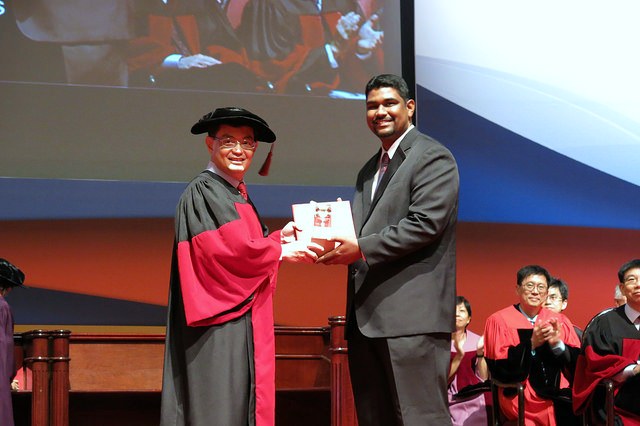 “Students may feel that they will not get to apply or use what they learn outside of school. This can affect their motivation to learn so I do want them to know that there are real-life applications to the science concepts that they learn,” said Mr Ashiq.
“Students may feel that they will not get to apply or use what they learn outside of school. This can affect their motivation to learn so I do want them to know that there are real-life applications to the science concepts that they learn,” said Mr Ashiq.
To help students visualise the concept of waves, Mr Ashiq brought a slinky toy to class, which is a pre-compressed helical spring. Playing with the slinky, students were better able to understand the physics concepts associated with the topic, such as equilibrium and disturbance. Another time, he brought a portable handbag hook, which ladies use to hang their handbag in public areas such as restaurants and cafes. The hook was useful in illustrating the concept of moment, which is a rotation about a point or axis.
For his outstanding efforts, Mr Ashiq was awarded the Outstanding Youth in Education Award (OYEA) 2014, which recognises young teachers for their commendable enthusiasm, energy and active involvement in youth development. Congratulations to Mr Ashiq!

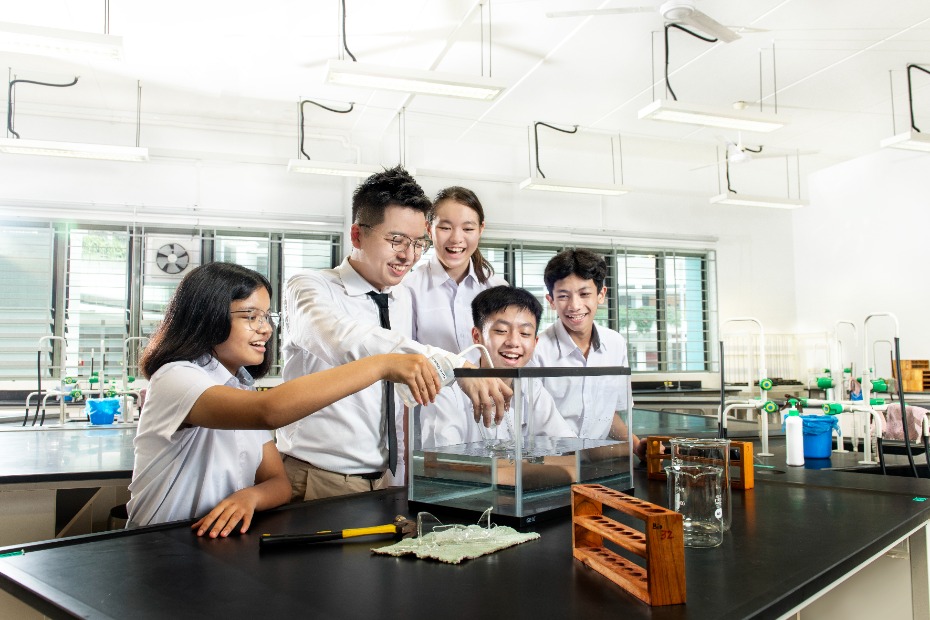
.jpg)

.jpg)
.jpg)